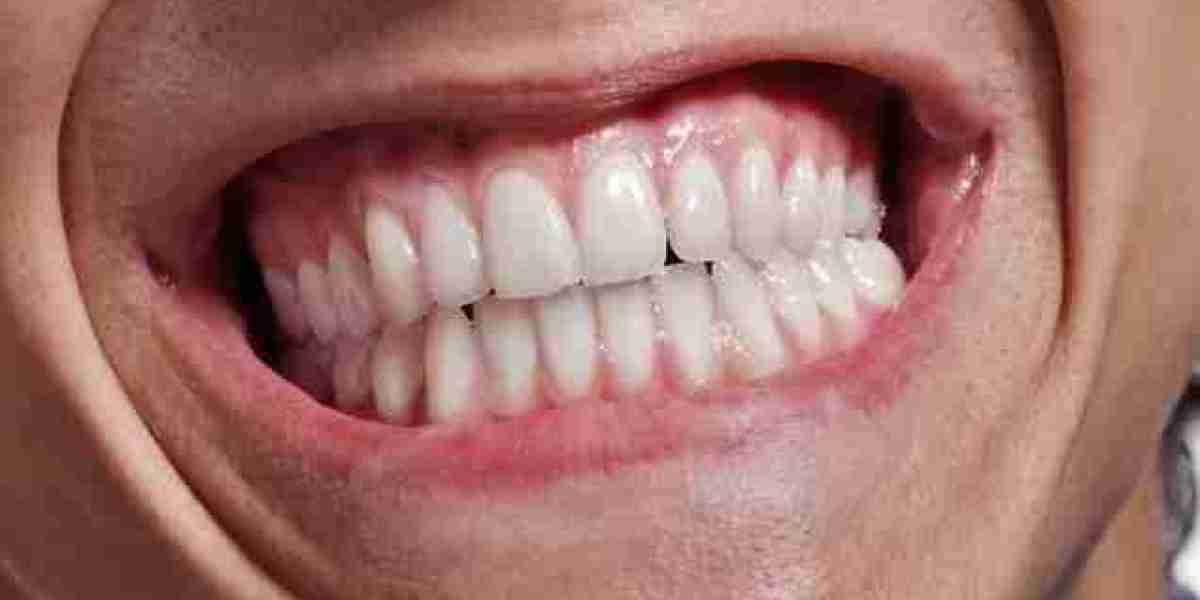If you’ve been wondering, can grinding teeth cause headaches or ear pain, the answer is yes—teeth grinding (also known as bruxism) can lead to more than just dental issues. This unconscious habit, often occurring during sleep, puts intense pressure on your jaw, which can radiate pain to nearby areas like the temples and ears. People experiencing frequent headaches or unexplained ear discomfort often don’t realize that teeth grinding could be the root cause.
How Teeth Grinding Affects the Head and Jaw?
The act of Teeth Grinding Treatment in Dubai may seem harmless, but it can lead to tension in the jaw muscles and joints, which are directly connected to the head and face. This muscle overuse becomes especially noticeable upon waking.
Continuous clenching strains the temporomandibular joint (TMJ), triggering jaw tightness
TMJ strain can spread pain to the temples, causing dull or throbbing headaches
Muscle fatigue in the face and neck contributes to tension-type headaches
Bruxism puts pressure on surrounding nerves, worsening facial discomfort
Misalignment of the bite from grinding may lead to uneven pressure and pain
Prolonged grinding can even lead to migraines in severe cases
These symptoms can become chronic if grinding isn't managed early.
Why Bruxism Leads to Ear Pain?
It’s common for people to confuse TMJ-related pain with ear problems. While the ears may not be directly damaged, the pain caused by grinding can radiate close enough to mimic earaches.
The temporomandibular joint is located near the ear canal
Inflammation or stress in the TMJ can create pressure in the inner ear area
Tightened muscles around the jaw can pull on tissues near the ears
This often results in ear fullness, popping, or aching sensations
People may mistakenly believe they have an ear infection or sinus issue
Ear pain linked to bruxism often comes without hearing loss or fever
Understanding this connection helps you identify the true source of discomfort.
Symptoms That Link Grinding to Head and Ear Pain:
While bruxism is typically diagnosed by a dentist, there are several signs that suggest your headaches or earaches may be linked to teeth grinding rather than other conditions.
Waking up with a sore or stiff jaw
Frequent headaches, especially around the temples or behind the eyes
Pain or clicking in the jaw when chewing or speaking
Aching near the ears without an obvious ear infection
Noticing flattened or chipped teeth from grinding
Increased tooth sensitivity, especially in the morning
If these symptoms occur regularly, it’s worth discussing bruxism with your dentist or doctor.
What You Can Do to Relieve Pain Caused by Grinding:
If you’ve connected your headaches or ear pain to Teeth Grinding Treatment, there are several effective ways to treat the underlying cause and relieve the discomfort.
Use a custom night guard to protect teeth and reduce jaw strain
Practice stress-relieving techniques like meditation or deep breathing
Apply warm compresses to the jaw to ease tight muscles
Avoid chewing gum or hard foods that strain the jaw joint
Improve posture to relieve tension in the neck and shoulders
Consider jaw exercises or physical therapy for TMJ relief
Early intervention can prevent long-term damage and significantly reduce pain levels.
When to Seek Professional Help?
Persistent headaches or earaches should not be ignored, especially if they interfere with daily life. If you’re still asking, can grinding teeth cause headaches or ear pain, and these symptoms continue, it’s time to consult a professional.
Your dentist can check for signs of bruxism like tooth wear or jaw alignment issues
A physician can rule out other causes like sinus infections or neurological problems
TMJ specialists can provide targeted treatments or recommend imaging if needed
In severe cases, Botox or muscle relaxants may be used to reduce clenching
Cognitive behavioral therapy (CBT) can help manage stress-related bruxism
A combination of dental and medical care often brings the most effective relief
Don’t let grinding-related pain go untreated—getting the right help can restore your comfort and protect your long-term health.
So, can grinding teeth cause headaches or ear pain? Absolutely. This often-overlooked condition can significantly impact your daily well-being. By recognizing the symptoms and seeking appropriate care, you can relieve your pain and protect your oral and overall health. Let me know if you'd like this article adapted into a printable dental handout or visual infographic!



